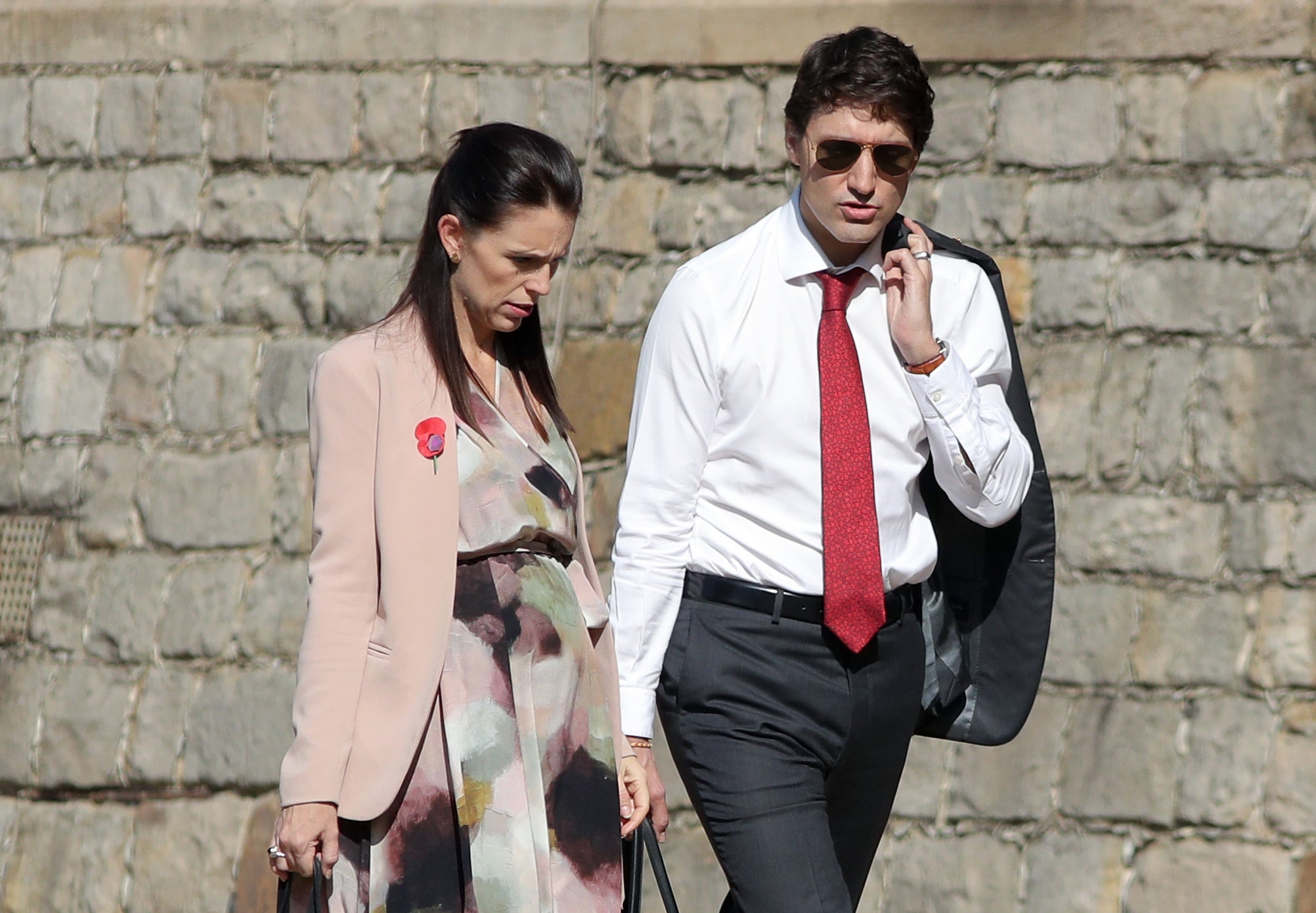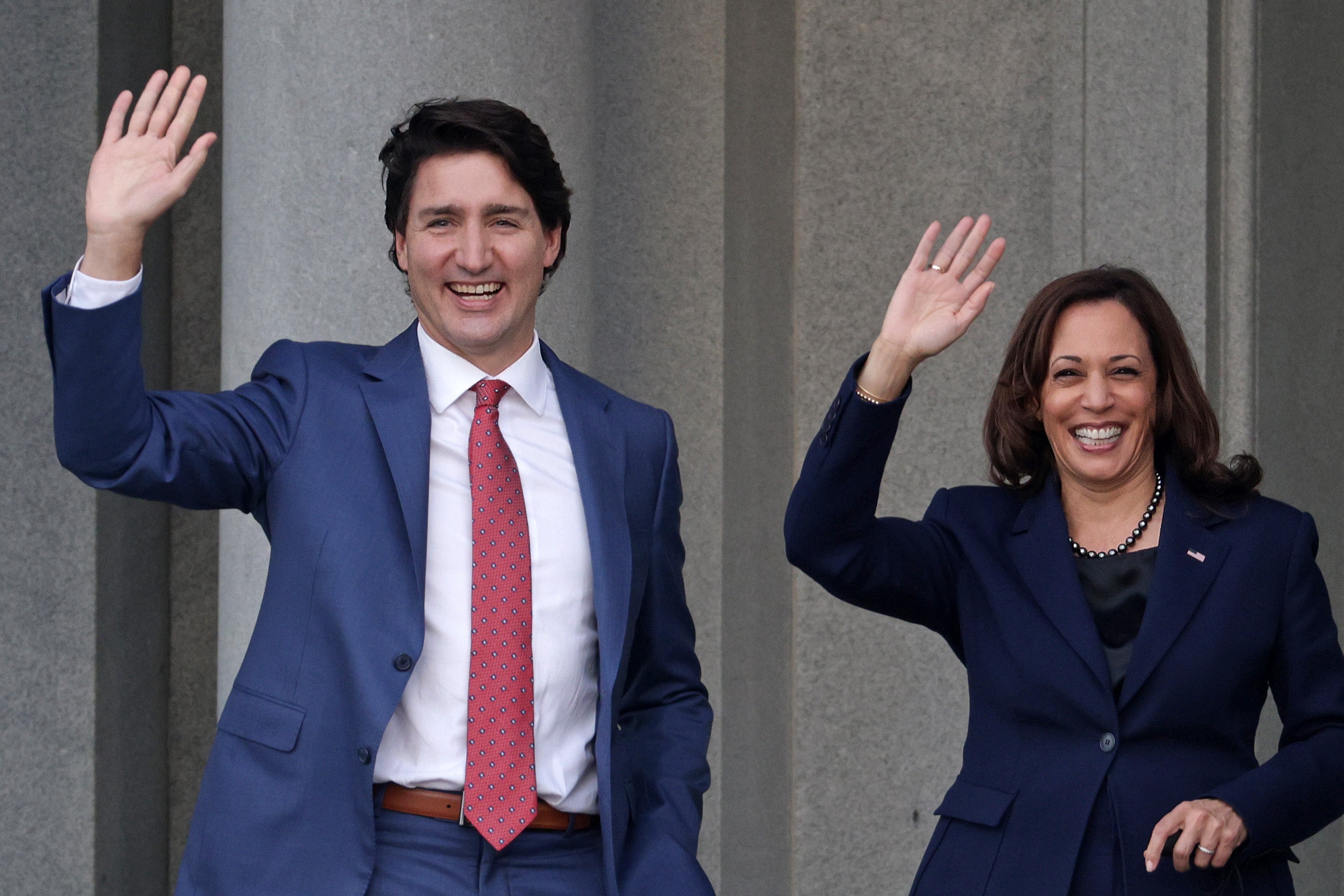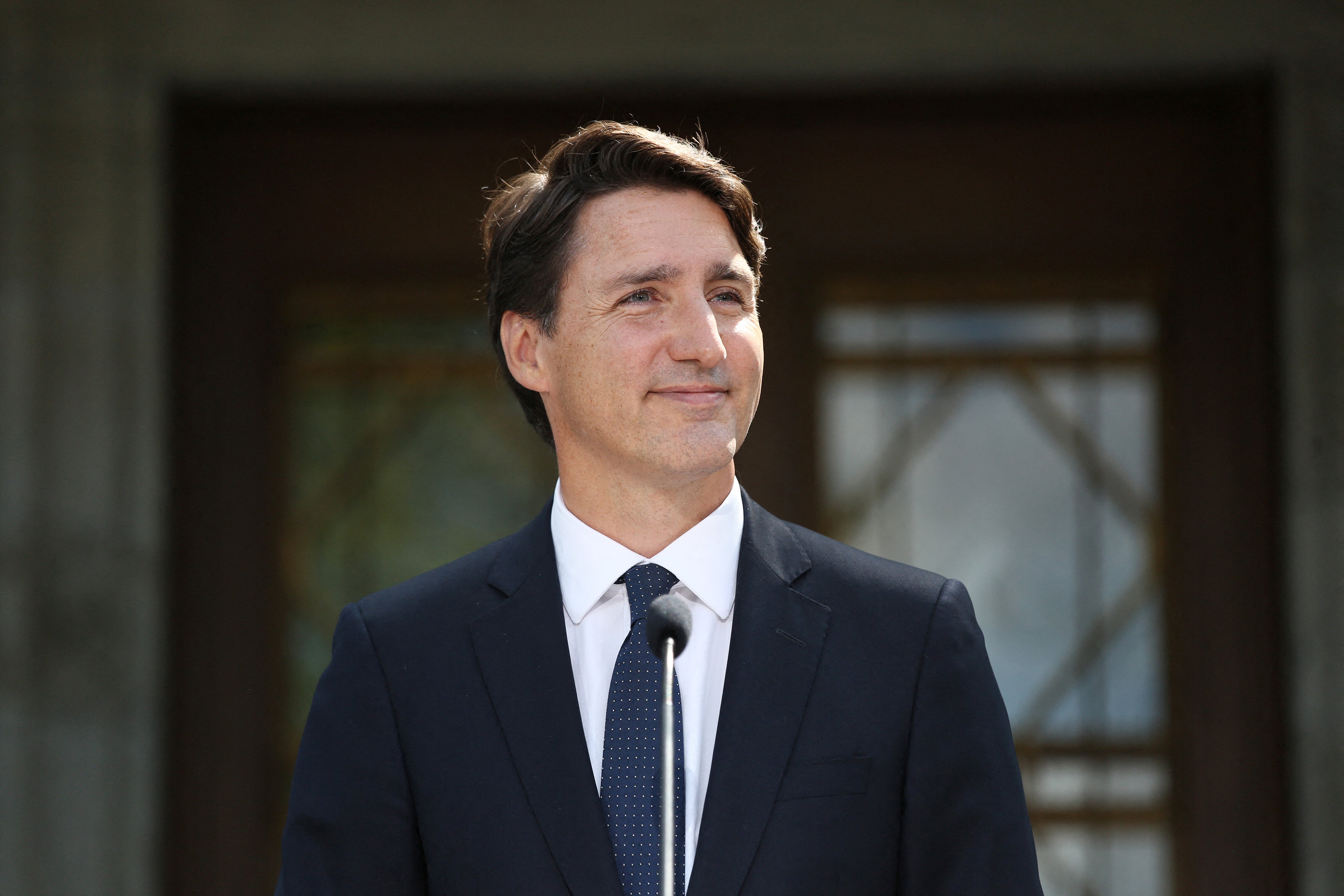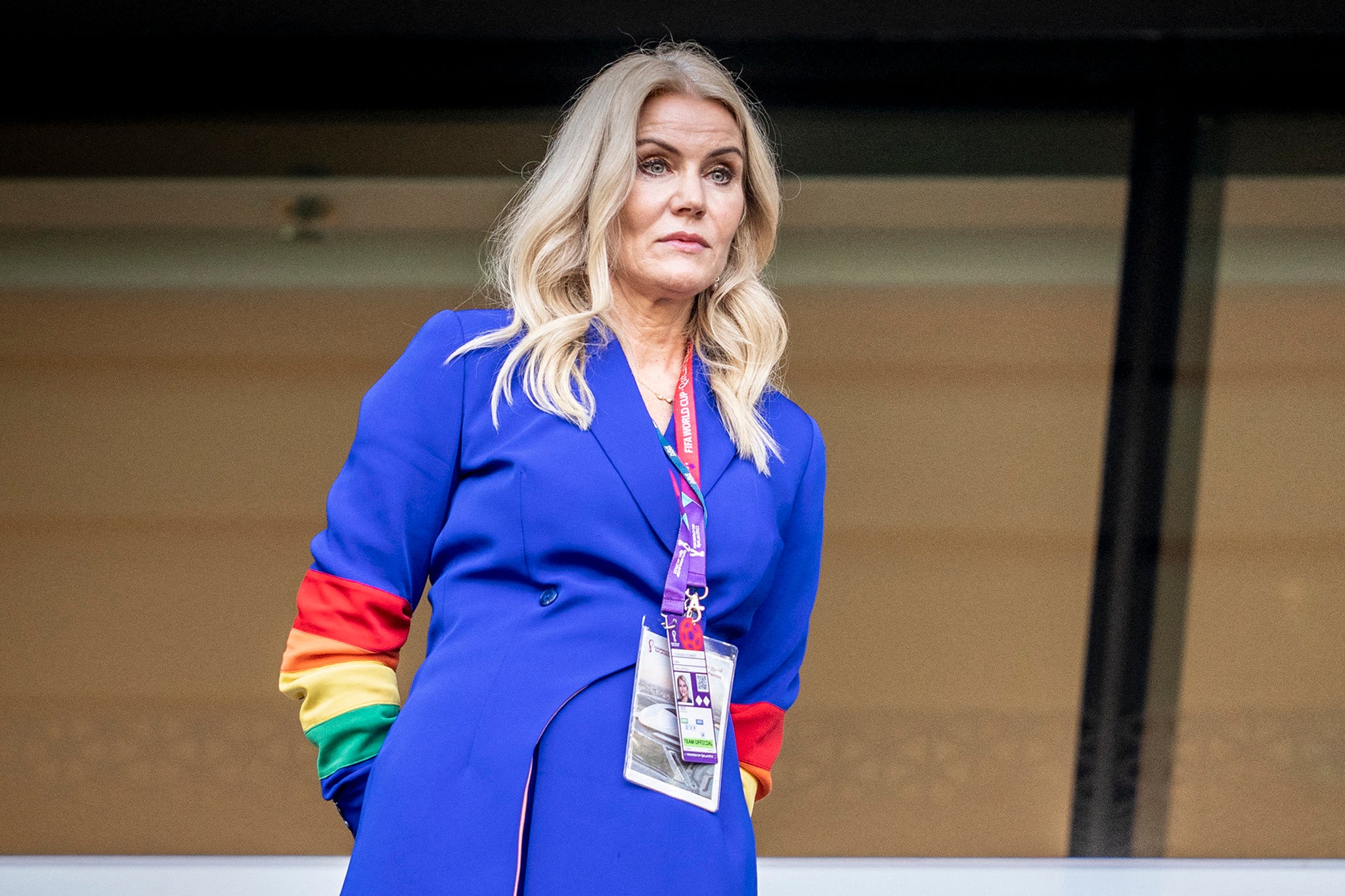Justin Trudeau and the downsides of being the handsome poster boy for liberal ‘goodness’
In just under 10 years, the prime minister of Canada has gone from the darling of the global liberal pack to a political pariah with an approval rating of less than 30 per cent. Here, Guy Walters looks at his career and why some seem to fall from a greater height than others in the ugly world of politics


When Justin Trudeau became the Canadian prime minister in 2015, people were still using that thing called Facebook. I can remember well the frothing posts by female friends, none of whom could contain their excitement at the election of this hottie PM. Furthermore, they gushed at the notion that what made him hotter still was not only that he was young and handsome, he was a lovely liberal dude too, which made him even more super-duper guy.
(If my male friends had written about an equally attractive female prime minister in such a way, they might well have been cancelled, but let’s park that.) As far as my friends were concerned – and to be fair, Trudeau had plenty of male fanboys – here was the perfect Generation X politician, and all would surely be well in his good hands.
It certainly doesn’t look like that any more because, at the time of writing, it looks like Trudeau is on his way out. With an approval rating of just 30 per cent, the former golden boy is now facing a huge crisis in the wake of his deputy prime minister and finance minister, Chrystia Freeland, resigning on Monday.
In a blunt letter to her former boss, Freeland laid into what she called his “political gimmicks”, which she said would only increase the country’s deficit at a time when it could least afford it in the expectation of Donald Trump’s stinging trade tariffs.
These “gimmicks” were indeed classic liberal nice guy policies that were designed to cosy up to the electorate. As the saying goes, the road to hell is paved with good intentions. Although Freeland was not specific, the policies she was referring to are likely to include the announcement of a sales tax exemption during the Christmas holiday season, which, if implemented, is estimated to cost the Canadian treasury some £4bn in lost tax revenue.
In essence, Trudeau is like the nice but weak dad who insists on giving the kids generous Christmas presents even though he’s hideously overdrawn. It’s perhaps a natural human instinct to be that nice guy – part of the package of someone who is used to being liked and needs to be adored, but ultimately it’s shielding the electorate from just how parlous the finances are.
It is often observed that what gets a politician into power is the same quality that makes them lose it. This could not be more true of the attractive liberal politicians we have seen come and go over the past few years. Good looks undoubtedly help you gain power but when you are the hot guy (or woman) in the hot seat and things aren’t on course, those cheekbones and cute smiles start to look like surface glitz. After all, you can never accuse a phenomenally ugly politician of style over substance, but you certainly can with a man as pretty as Trudeau.

The paradox with attractive politicians is that they are expected to deliver results commensurate with their appeal, and so they often find they are judged to a higher standard. Take the case of the former Finnish prime minister Sanna Marin. Bagging the top job at just 34, Marin swiftly became an international darling, a global icon with her poise and modern aesthetic.
However, her four-year career as PM also highlights the double-edged sword of being a cool and charismatic liberal leader. Take the infamous “party video”, which showed Marin dancing and singing with friends, which became a turning point in the public’s perception.
Then there is Trump, the very antithesis of the likes of Trudeau. Despite being a physically unappealing oaf, the president-elect is perhaps the vainest politician to walk the planet
What could have been seen as a display of liberal “normalness” and work-life balance soon provided fodder for strong critiques of her leadership style. Marin’s policies – particularly her robust stance on Ukraine – became overshadowed by the image of her seemingly too-cool-for-school personal life. Her downfall in 2023 revealed how public perceptions of her image eclipsed her achievements.
There can be little doubt that female politicians, especially if they are attractive, can face a harsher double standard than their male counterparts. Because being appealing to the eye is often mistaken for superficiality, leaders like Marin must have felt they constantly prove that their substance matches their style – an impossible tightrope to walk for even the most capable and smart politicians.
This was undoubtedly true of Denmark’s first female prime minister, Helle Thorning-Schmidt, who was in power from 2011 to 2015. Dubbed “Gucci Helle” by critics due to her stylish wardrobe and slick MO, Thorning-Schmidt’s leadership faced constant scrutiny over perceptions of elitism.
Her tenure was marked by significant political challenges, including economic reforms and austerity measures. While she successfully guided Denmark through turbulent economic times, her legacy was tainted by the narrative that she was out of touch with everyday Danes – a critique that will be familiar to Trudeau.

It all highlights the uncomfortable reality that attractive politicians with “kind hearts” often face: their appearance becomes both an asset and a liability, subjecting them to heightened expectations and harsher judgement when things go wrong. Which, in politics, they invariably do. Every career in politics ends in failure but for Trudeau and his type, the fall from grace feels higher and more crushing.
Then there was Jacinda Ardern, the embodiment of the hyper-liberal and sleek politician. As the prime minister of New Zealand, she became a symbol of compassionate leadership, particularly in the wake of the Christchurch mosque shootings and her government’s early success in managing the Covid pandemic. Her empathy, combined with a polished media presence, made her a darling for liberals the world over.
Yet all of this did little to help as her government faced mounting challenges. She was accused of failing to address New Zealand’s housing crisis, cost of living pressures, and rising crime. For all her international acclaim, domestically her government struggled to maintain the momentum that had defined her early years in office.
Ardern’s decision to step down in January 2023 – citing exhaustion and an acknowledgement that she “no longer had enough in the tank” – may have been praised for its humility but it also underscored the immense scrutiny that comes with the job. The expectations placed on her leadership were as outsized as the praise she initially received, and in the end, the burden of maintaining a polished perfect image surely took its toll.

But the roots of the downfalls of these figures prompt a key question. Ultimately, does the constant billing and cooing they get from being such an attractive and hopeful prospect become an addiction; do they end up becoming insufferable people-pleasers, unable to wield some tough love because they so adore the adoration?
In essence, does being a poster boy (or girl) for goodness mean that you’re even more ready to dish out “political gimmicks”, as Trudeau is now being accused of?
The example of Giorgia Meloni, the prime minister of Italy, would buck that trend. Undoubtedly good-looking, Meloni is most certainly not a liberal. And while the physical appeal of Javier Milei may be a little more specialist than that of Justin Trudeau or France’s former PM Gabriel Attal, there is no doubt that the immensely charismatic president of Argentina is about as far from being a cuddly liberal as you can get.
And then there is Trump, the very antithesis of the likes of Trudeau. Despite being a physically unappealing oaf, the president-elect is perhaps the vainest politician to walk the planet.
But what makes him – and the likes of Meloni and Milei – successful is that they simply do not care how many enemies they make. What these liberal politicians have to realise is that politics is an ugly game, and to succeed, you often have to behave like the ugliest of them all.




Join our commenting forum
Join thought-provoking conversations, follow other Independent readers and see their replies
Comments